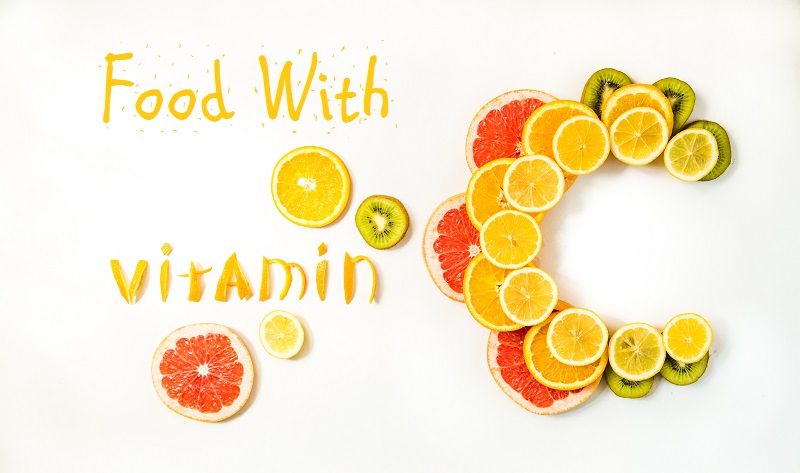Food with Vitamin C helps us reduce stress. It does so because it controls the level of cortisol in the blood and facilitates the production of serotonin and GABA. According to various studies, vitamin C helps us on how to reduce stress and improves cognitive processes. It achieves it in the first place, reducing the level of cortisol in the blood. Likewise, it also acts on the nervous system, since it favors the formation of myelin in neurons. In this way, it improves cell communication and optimizes processes such as memory.
Sayings as classic as “orange, lemon, and pomegranate before anything”, give us an example of the appreciation that these foods have had in our culture. So, in the past, and in order to face those harsh boat trips that our sailors carried out, among the basic cargo there were always Food with Vitamin C to prevent scurvy.
Now, in our day to day almost always relate vitamin C as that key element to prevent colds and flu. However, it should be noted that this type of nutrient, by itself does not save, cure or prevent ailments. It helps us to prevent, to strengthen defenses and to favor a series of basic processes that can mediate our well-being.
It is an essential nutrient and as such, should be in our diet. However, it is also interesting to know that vitamin C helps us to have a healthier brain. Let’s see the data that supports this idea.

Mechanisms by which food with vitamin C helps us reduce stress
A study by the Oregon University of Health and Science was the gateway to the world of an interesting discovery. It could be seen that, when a person has a deficit of vitamin C, GABA-type receptors stop functioning properly. Let us think that gamma-aminobutyric acid has very important functions within the central nervous system:
- A low level of this neurotransmitter is associated with anxiety disorders, insomnia or depression.
- On the other hand, having a high amount of GABA favors processes such as relaxation, concentration, memory, reduction of the sensation of fear or alarm, etc.
Dr. Henrique von Gersdorff, a scientist and co-author of the study, points out that it is likely that vitamin C has a more important role than we thought in our brain.
In fact, it is also known that it favors the synthesis of several neurotransmitters and that its presence is essential to convert dopamine into serotonin and that, in addition, it modulates the release of neurotransmitters in nerve cells.

The brain needs vitamin C
Food with Vitamin C helps reduce stress because it acts basically as a neuromodulator. Thus, and although we are often told that we should raise the consumption of fresh fruit and vegetables to have that essential nutrient, it is interesting to remember a curious aspect.
The part of our body that most seems to need vitamin C is the brain. In fact, it has been found that when the human body is deprived of vitamin C, this element remains in the brain for longer than anywhere else in our body.
Science still does not understand how many processes and mechanisms it can mediate. However, there is one that is known and proven: vitamin C reduces the level of cortisol in the blood.
- Studies like the one carried out by Doctors Oliveira J, de Souza VV and Motta V in 2015, showed that vitamin C helps us reduce stress and anxiety by regulating the production of this hormone (cortisol).
- In addition, in this study, we could see how a group of high school students scored better in tasks of memory and concentration, after a few months increasing their consumption of vitamin C
- Vitamin C is essential for the synthesis of collagen. Thanks to this element not only take care of the health and resistance of the teeth or bones. In addition, we improve the integrity and resistance of blood vessels, which is essential to optimize our cognitive processes.

How can we take care of our vitamin C levels?
Curious as it may seem, and as specialists tell us, it is very common to have an insufficient level of vitamin C. We always think that without this essential element, we will be more prone to suffer conditions such as colds or poor healing of wounds.
However, as we have pointed out, the organ that most seems to need vitamin C is the brain. Without it we will feel more overwhelmed. We will have concentration problems, as well as a greater sense of stress. Also, we must also remember that we need ascorbic acid (vitamin C) to improve the absorption of iron.
Let’s see therefore what we must do to improve their levels. The recommended daily intake of vitamin C is between 75 and 90 milligrams.
Instead of resorting to the classic supplements, it is always better to follow food with vitamin C:
- Oranges and lemons
- Mangoes
- Pomegranates
- Currants
- Guavas
- Broccoli
- Red peppers.
- Strawberries
To conclude, we already know that vitamin C helps reduce stress. However, let’s not forget to improve our life habits. Avoid tobacco, perform some sport and integrate in the day to day adequate relaxation techniques and management of anxiety and stress will also help us.
You may also like to read this blog.


